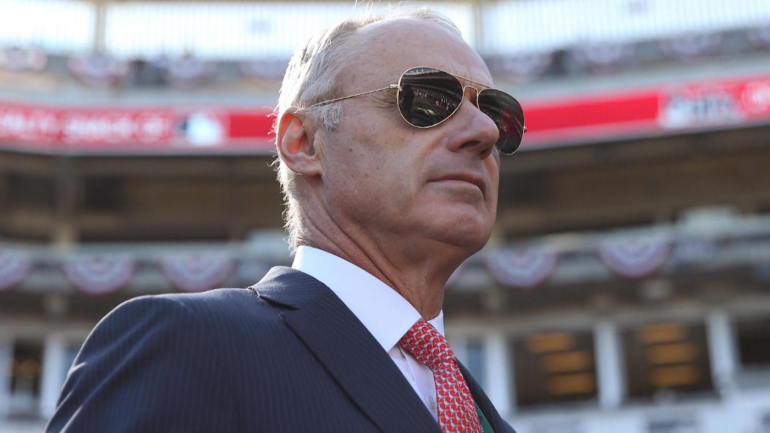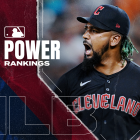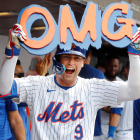
A day after telling Major League Baseball Player Association head Tony Clark that the regular season might have to be canceled if the COVID-19 situation doesn't improve, MLB commissioner Rob Manfred has either changed course or is trying to change the narrative.
ESPN's Karl Ravech tweeted on Saturday that Manfred told him the following: "We are playing. The players need to be better, but I am not a quitter in general and there is no reason to quit now. We have had to be fluid, but it is manageable."
Jon Heyman of MLB Network also tweeted Saturday afternoon that the league had a call on Friday and that Manfred and the owners have a "strong commitment" to make health the priority while playing as many games as possible. "To sum up, plug isn't about to be pulled," Heyman said.
One could point out that there is ample reason to stop the season. One team, the Miami Marlins, has already experienced a COVID-19 outbreak that resulted in 18 players testing positive. Another, the St. Louis Cardinals, could be in the early stages of their own breakout after a handful of players and staffers have tested positive in recent days. On Friday night alone, a full 20 percent of the league was sidelined due to COVID-19-related complications.
All that despite the season being fewer than 10 days old.
One could also point out that Manfred is clearly establishing the players as the culprits if things continue to go south. It's true that the players owe a share of the blame -- especially if MLB's internal investigation is correct and the Marlins went out and congregated at the hotel bar -- but it's not that simple. If the MLB season gets shut down, it's going to be because of failures at three levels: the government level, the league level, and the player level.
For an example of where Manfred and the league could have been better, consider the adjustments it made this week, including hiring a compliance officer. Having a trained professional in place who could help with education and offer instruction on risk-management is an obvious concept. Yet, for whatever reason, the league did not act on having those individuals in place until after the season started.
Remember, the league shut down in mid-March and didn't pick back up until early July -- there was ample time in between to figure out these aspects that could've improved the league's chances of making it through the 60-game season.
If the league had been more proactive in that regard, perhaps it would be in a better position right now. As it is, it's certainly not encouraging that the commissioner needs to tell reporters that he isn't a quitter before some teams have had their home opener.


















